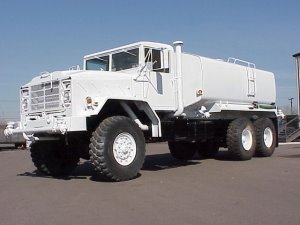Daniel Dawkins & Leston Simpson show the value of waste -
JAMAICAOBSERVER.COM Daniel Dawkins & Leston Simpson show the value of waste
|
BY KERRY MCCATTY Sunday Observer staff reporter mccattyk@jamaicaobserver.com
Sunday, October 14, 2007
|
It was murky and stinky, but they didn't care. All Daniel Dawkins and Leston Simpson knew was that water, in whatever dispensation, puts out fire. So, in March when they saw black smoke encircling the skies of Manor Park, St Andrew and people "running, crouching, waiting for the impending explosion", from a fire that had started in the Shell service station, there was only one thing to do - douse the fire. with liquid waste.
And for that quick thinking, which prevented what may have been a deadly explosion, the men will tomorrow be awarded with the Badge of Honour for Gallantry at the National Indoor Sports Centre.
Dawkins, who owns Allied Cesspool, and his employee, Simpson, were pulling effluent from a cesspool in the shopping mall next door to the gas station.
 |
| Daniel Dawkins (left) and Leston Simpson will receive the Badge of Honour for Gallantry tomorrow for using effluent from a cesspool truck to help put out a fire at a service station in St Andrew. (Photo: Karl McLarty) |
"Whether the water is clean, dirty, smelly or effluent, get some water [on] it," Dawkins said, explaining his and Simpson's mindset leading to their act of bravery.
Simpson said he suggested to Dawkins that in the same way the truck could draw the waste, it could let it out. Dawkins immediately understood.
"An him say if mi brave enough and if we serious enough we can go over there and get it done," Simpson said.
Simpson was indeed serious, especially since this was not the first time he was using effluent to put out a fire.
He said while he worked at another cesspool company years ago, he witnessed a van engulfed in flames and "we just get a cesspool truck and deal wid it".
Both men said they were only thinking of the danger they were averting, nothing else.
"I'm an action-oriented person, so once I'm into it, you start giving commands, doing what needs to be done," Dawkins explained.
The fire broke out as a customer filled a container with gasolene. A Toyota Hilux pickup truck was partially damaged while a gas pump was destroyed by the blaze.
"I don't know what made me do it. But I thought that Manor Park would be in serious trouble if that gas station had blown up," Dawkins said. "We had to do something."
Dawkins eventually called back a water truck that had been working with them at the shopping mall to help contain the blaze as "it was really fighting us".
Dawkins and Simpson are among six people who will receive the Badge of Honour for Gallantry, the others being Lusson Bartley, for apprehending and bringing to justice two gunmen who robbed a store and, in another incident, reporting two gunmen to the police, which resulted in their capture and conviction; Joel Davidson, who prevented an 11-year-old girl from drowning, when he pulled her from a pool; Mark Wilson, who shot and killed three of four gunmen who were attempting to rob persons at an apartment complex; Annette Wong-Lee, for shooting one of two gunmen who entered her home; and eight-year-old Don Christopher Barnes, who saved a friend from drowning.
"I can't wait for that moment," Simpson said in anticipation of tomorrow's ceremony, where his family will accompany him. "Trust me, I never know it would be something so exciting."
